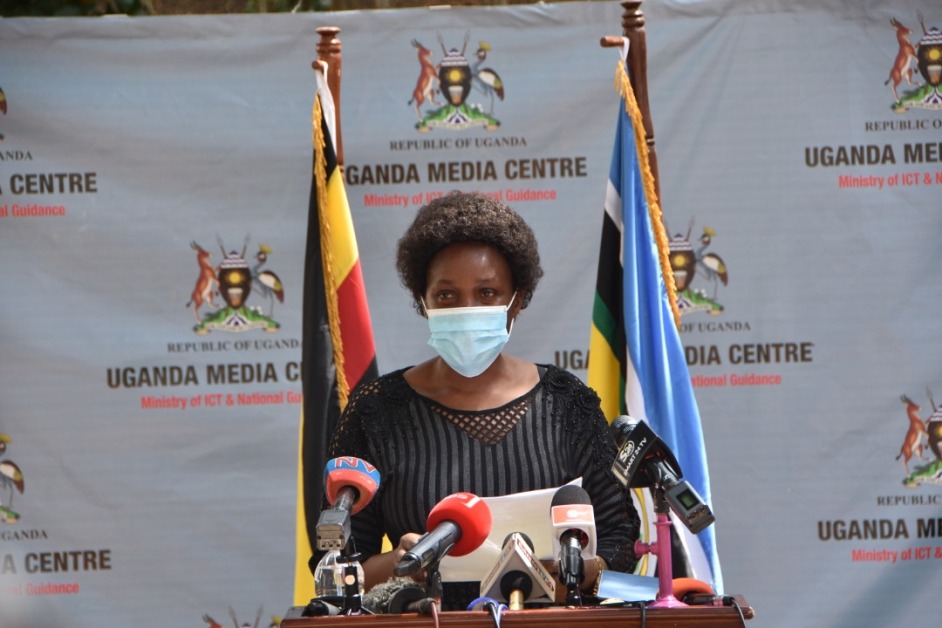ICT Minister Judith Nabakooba
By Francis Otucu
The Ministry of ICT and National Guidance reports that the sector registered many achievements in line with the NRM Manifesto 2016-2021, Uganda Vision 2040, NDP III and the ICT Sector Strategic & Investment Plan.
ICT and National Guidance Minister, Judith Nabakooba says her ministry achieved over 85% of the NRM Manifesto commitments and Presidential Directives.
The focus, she says, in the 2021-2026 government will be to create 500, 000 direct and indirect jobs within the ICT sector.
The Ministry will also focus on increasing ICT penetration.
Nabakooba says the Ministry further aims at achieving 90 percent national broadband coverage with minimum speed of 8 Mbps while the Digital Terrestrial Television signal coverage from 56 percent to 95 percent and 70 percent NBI connectivity in Government MDAs/DHq.
The other target is to reduce the cost of ICT devices and services in terms of unit cost from 1Mbps /month of internet on the private sector retail market from USD 237 to USD 70, and to USD 20 for Government, unit cost of low entry smart phones from UGX 100,000 to UGX 60,000 or lower and cost of a computer from UGX 1,600,000 to UGX 800,000 and provide 80 percent of government services online.
However, Nabakooba says the very dynamic nature of the ICT ecosystem and difficulty in retaining ICT staff in Government is a big challenge.
Other challenges, she says, are low funding coupled with persistent budget cuts to the sector, categorization of community mobilization and mindset change as consumptive budget, vandalism of ICT infrastructure and bush fires, fraud and other misuse of communication services, high taxation regime affecting adoption of ICT and that UBC has an accumulated debt portfolio of over UGX. 75Bn including the principal, penalties and interest on funds owed to NSSF, URA, UMEME and NWSC.
She says the digital transformation targets for the next five years have been set out.
They are; deployment of secure, integrated cross-sector infrastructure, developing and promoting usage of quality communication and e-services, digital inclusion and citizen participation, ensuring standardization and interoperability of systems, enhancement of national cyber security, promoting innovation and commercialization of ICT products, enhancing digital literacy and developing skills, supporting development and uptake of emerging technologies such as Fourth Industrial Revolution Technologies; and process re-engineering and automation for end-to-end government business and service delivery.




